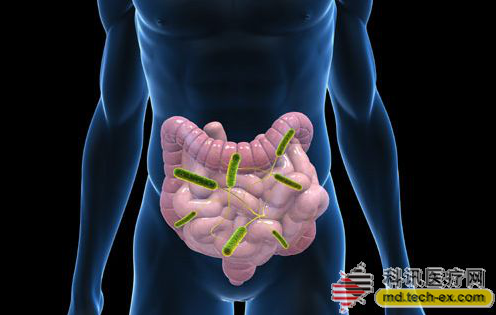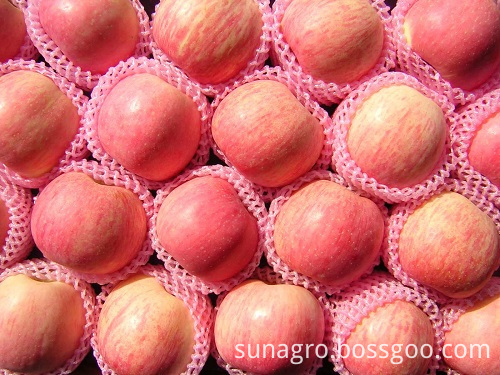Release date: 2015-12-28

After decades of setbacks, scientists have finally been able to effectively use the immune system to fight tumors, cure kidney cancer and melanin, and ignore some failed cases. We can even say that the era of immunotherapy has been opened. We can use the same argument to describe the human microbiome, but trillions of microbes in humans have been ignored by us for centuries. However, studies have gradually revealed the importance of microbes in the body, especially their ability to train and adjust the human immune system.
Nowadays, "immunotherapy" and "intestinal microbes" collided head-on, sparking a spark that excites scientists. Two groups of scientists have found that gut microbes (at least in mice) significantly affect the immune system's ability to cope with cancer: these microbes affect an individual's natural immunity to cancer and the individual's response to immunotherapeutics; certain types of bacteria can effectively By harnessing the individual's anti-tumor immunity, these results provide new insights into the development of more effective cancer drugs.
Immunotherapy combined with intestinal microbes for better anticancer effect
In 2013, two groups of scientists showed that three cancer drugs can modulate the immune system to kill tumor cells, but this happens only in organisms with normal intestinal microbes. These three drugs work by releasing T cells, a type of immune cell that can look for and destroy potential threats, including cancer, and T cells are often silenced by checkpoint proteins on their surface. By inhibiting these checkpoints, drugs such as ipilimumab remove the "nose mouth" of T cells and release large amounts of fluid to destroy T cells in the tumor.
But if there is no normal intestinal flora, this seems unlikely. The Laurence Zitvogel research team at the Gustave-Roussy Cancer Institute is trying to find out if checkpoint inhibitor drugs have the same effect. When the researchers asked the experimental mice to take antibiotics to destroy the original gut microbes, the ipilimumab drug lost its function, lost the function of mobilizing normal T cells, and could not control the tumors of rodents. Again, this magical drug can't work in sterile rodents. Zitvogel said at the NCRI Cancer Conference in Liverpool that "ipilimumab does not have any effect in organisms without intestinal flora."
However, some bacteria work more prominently than other bacteria. The researchers found two special bacteria, Bacteroides thetaiotamicron (the most thoroughly studied gut microbe) and Bacteroides fragilis (B-frag, a powerful anti-inflammatory drug). It can control the sensitivity of mice to ipilimumab drugs.
So what happens to human cancer patients? To find out, the team studied 25 patients with advanced melanoma and found that ipilimumab drugs changed their microflora. Before and after taking, ipilimumab made the intestinal microflora structure different, and each structure was dominated by different species of Bacteroides. When the researchers transplanted the microbial flora of patients taking ipilimumab into sterile mice, these mice responded well to ipilimumab, and the microbial flora before transplantation of ipilimumab did not. This proves once again the importance of B-frag: the greater the abundance, the smaller the tumor.
So why does ipilimumab stimulate microbial growth and make it more effective? Sarkis Mazmanian, an immunologist at the California Institute of Technology, said that there are many problems to be solved before using these results in human trials, but the link between immunotherapy and microbes is very exciting. â€
Feces combined with drugs are more effective
At the same time, the second group of research teams led by Thomas Gajewski of the University of Chicago took a different approach but came up with similar results. For the first time, they noticed that the two mouse strains responded significantly differently to melanoma. Compared to Taconic Biosciences (TAC), mice purchased from the Jackson Laboratory (JAX) were less aggressive in tumors because they initiated a more active T cell response.
When the researchers put the two groups of mice together, the difference disappeared. Why is this again? Because mice tend to eat each other's feces and absorb each other's gut microbiota, TAC mice can better control cancer by taking in the microbes of JAX mice. When the researchers implemented intentional transfer measures, it was found that JAX feces slowed tumor growth like PD-L1. Therefore, feces and drugs may work better.
There are more than 250 differential microorganisms in the microbial flora of these two mice, but only one type, Bifidobacterium (Bifs), is associated with anti-tumor T cells. When TAC mice ate feces in JAX mice that control tumors, the number of such microorganisms increased by a factor of 400. By deliberately administering Bifidobacterium to mice, the Gajewski team found that this behavior increases the ability of mice to produce anti-tumor T cells and control tumors.
Although both studies used mice as subjects, they all suggested why a small number of patients have a good function of checkpoint inhibitors because the lucky ones may have intestinal microbes that make the drug more effective. If these are confirmed, a combination of drugs (drugs with B-frag, Bifs, other immunostimulatory microorganisms, drugs) can be developed by sequencing the patient's microbiome and inferring the response of these microorganisms to ipilimumab and other immunotherapies. The combination of feces in patients with good response, the researchers said, "For some people, this drug may have a greater effect."
Source: Bio-Exploration
Fuji apple is mainly produced in shandong province. Fuji apple has smooth skin and good color, full fruit juice, sweet and refreshing taste.New harvest season for Fuji apples from September to October.The cold storage season is from October to June next year.Fuji apple mainly exports to southeast Asia, the Middle East, Europe, Russia and North America.Apple packaging includes both inside and outside packaging.Inside packing: paper tray, apple net, plastic bag or sleeve.The outer packing is 3kg CTN, 4kg CTN, 9kg ct, 10kg CTN, 16kg CTN, 18kg CTN or 20kg CTN or as required by the customer.All sizes are graded according to your requirements.When packaged in all sizes in natural proportions, all sizes come in full blush and striped red, and Fuji apples are the best and most competitive in the entire market at fresh prices.Our Fuji apple prices will be to your satisfaction.

Fresh Red Fuji Apple,Red Fuji Apple,Organic Red Fuji Apple,Super Red Fuji Apple
Jining Sunagro Trade Co., Ltd. , https://www.sunagro-food.com